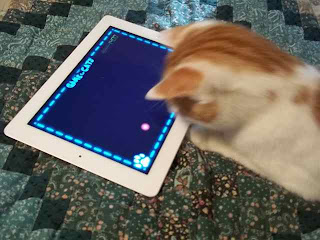Eaglebait
Originally classified as YA, Eaglebait now fits the criteria for a middle grade novel. Since today's youth "read up," the protagonist—Wardy Spinks, a fourteen-year-old high school freshman—would be a bit young for today's YA readers. However, middle school students could well identify with underachieving Wardy's desire to avoid being the butt of the bullies' jokes, to adapt to his parents' divorce, and to find his niche.
Wardy, recently kicked out of military school and still bruised from the beating his fellow cadets had given him, returns home to learn his parents are separating and he'll be attending public school. Despite his abysmal grades, his test scores show he's very bright so he's placed in some advanced classes—including Latin and biology where he notices the pretty but shy Meg. Bullies from his past confront him again and make his life miserable.
At home his ten-year-old sister adds to his misery, and his stressed-out mother is fed up with the problems he's caused. Dad's too busy with his new girlfriend to get involved. Wardy, who loves chemistry and physics, finds solace in his father's former workshop which he converts into a laboratory. The only family member who understands him is his artist grandmother, but she's often out of town. The only friend he used to have now lives in North Carolina.
When he and Meg are assigned as biology lab partners, he finally has someone to talk to. He even shows her the laser he's working on. Meanwhile, pretending to be a scientist, Wardy corresponds with a physicist about his laser experiments, and at school a brilliant but demanding science teacher, Mr. Guterman, discovers Wardy's potential. Guterman soon makes Wardy his assistant, and Wardy has little time for Meg or for anything else. Guterman has big plans for Wardy, who eventually realizes he's being manipulated.
Eaglebait explores themes important to kids on the brink of growing up and struggling to find themselves: finding your dreams, making the right decisions, becoming your own person, dealing with difficult people, determining what's important in life.
Things have changed considerably in the twenty-two years since Eaglebait was first published. The Internet—which could have helped Wardy immeasurably with his research—isn't there. He doesn't have to cope with cyber-bullying or what others are texting about him or uploading to YouTube. Instead bullies taunt him in person and trap him in a phone booth (You might have to explain to younger readers what that was) where Wardy drops in a quarter and dials to get help. The school corridors don't have security cameras. He still rides his bike to school or walks. His correspondence is via snail mail. When his former best friend—now a pothead—offers to lend Wardy some bread, some contemporary kids might not know Wardy isn't being offered baked goods.
 |
| 1989 cover |
Susan Coryell reads from her book here and blogs here.
Labels: reading. writing, review




















































